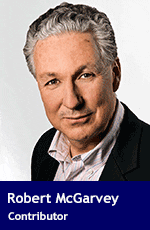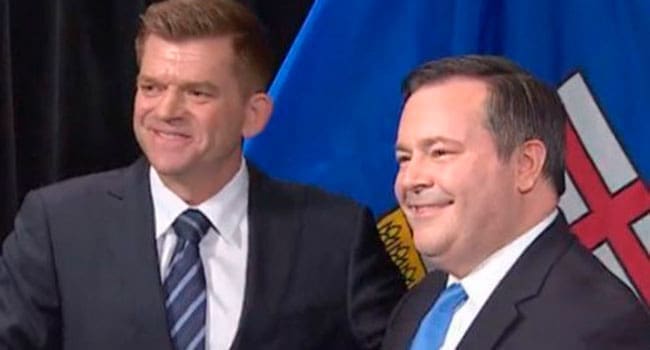 Have the big changes in Alberta’s conservative movement united the right or will it shatter it?
Have the big changes in Alberta’s conservative movement united the right or will it shatter it?
Members of Alberta’s two right-of-centre parties, the Progressive Conservatives and Wildrose, have voted to form the new United Conservative Party.
Both Jason Kenney, leader of the (now defunct) Progressive Conservative Party and former Wildrose leader Brian Jean are enthusiastic. As far as they’re concerned, a unified right will almost guarantee victory in the next provincial election.
But what kind of party might emerge and would it actually unite right-of-centre voters?
The three main leadership candidates have different visions for this new United Conservative Party.
Kenney, a former federal Conservative cabinet minister, is a pragmatist and a master at the administrative game. He’s built his power base in Alberta politics from the inside out, seizing the initiative at the constituency level and then leveraging the organizational apparatus of the embattled PC party.
Apart from nostalgia for the “good old days,” Kenny’s political direction is anybody’s guess. He’s not a great orator or visionary. And he’s been speaking in very general terms about free enterprise, bringing back balanced budgets and restoring the Alberta Advantage.
Jean, on the other hand, seems to have done a political 180. The former leader of Alberta’s socially conservative alternative, he now favours a more centralist approach, proposing a more progressive conservative line. “The days of hard-right governments in Alberta are over and most Albertans want a more middle-of-the-road way of doing things,” he has said.
Jean recognizes the danger inherent in the growing deficit and promotes spending cuts to reduce it, but promises that those cuts will be as painless as possible.
Why then blow up the Progressive Conservative Party? Why not simply unite Alberta’s progressives and conservatives in a Lougheed-like coalition? Former Alberta premier Peter Lougheed’s big-tent conservative coalition was a winning formula for almost half a century; not a bad run by any standard.
On the fringes is a firebrand form of conservatism promoted by as yet unannounced candidate Derek Fildebrandt.
Fildebrandt is no softy. Inspired by American conservatives, he rebels against what he calls “milquetoast, marshmallow, vanilla conservatism.” He wants to go for the jugular. Have a spending problem? He would slash government spending and unleash corporations from the dead hand of government regulation.
He’s made plain that if sacrifices need to be made, just do it.
Kenney, mastermind of this unification, expressed concern that one or two bad apples in both parties might not accept the outcome of the vote, even question its legitimacy and not join the new party.
He need not have worried. The former rival right-of-centre caucuses were pictured smiling broadly with a thumb’s up salute for their new unity.
MLA Richard Starke was the notable exception to this chummy bunch, which immediately selected Nathan Cooper as their interim leader.
The larger worry is that the new party must choose a permanent leader in October and that leader will have a profound impact on the party’s platform and political direction.
An overly-conservative platform would likely alienate non-aligned middle-of-the-road voters and certainly be a challenge for the former progressive members of the PC party. This could present a longer-term problem.
In the short-term, Edmonton Sun columnist Lorne Gunter believes Alberta progressives will hold their noses and unite behind the new party, given their abhorrence of out-of-control spending.
He may be right but longer-term, it needs to be remembered that progressives – the pragmatic middle of Alberta – have determined the outcome of the last two elections. They were persuaded to stick with the PCs in 2012 by red Tory Alison Redford, then abandoned Jim Prentice’s PCs and elected the inexperienced Rachel Notley as the province’s first NDP premier in 2015.
Where will the progressives go longer term? It’s hard to say. But it’s something the party membership might want to consider when they cast their ballots for the United Conservative’s new leader in October.
Robert McGarvey is an economic historian and former managing director of Merlin Consulting, a London, U.K.-based consulting firm. Robert’s most recent book is Futuromics: A Guide to Thriving in Capitalism’s Third Wave.
Robert is a Troy Media Thought Leader. Why aren’t you?
The views, opinions and positions expressed by columnists and contributors are the author’s alone. They do not inherently or expressly reflect the views, opinions and/or positions of our publication.

